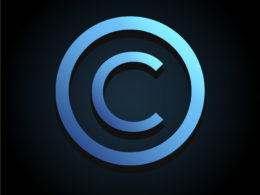Background
In the silent era, trailers were shown after movies and were often ignored by audiences who naturally left after the film ended.1[1]Daniel DiStefano, A Brief History of Film Trailers, Michigan Quarterly Review. Accompanied by cartoon shorts, newsreels, and serial adventure episodes, these movie trailers were found to be somewhat ineffective.2[2]Id. Today, however, trailers are a vital part of a movie’s advertising campaign, often serving as the first opportunity for audiences to learn about the upcoming film.3[3]Id.
2020 and 2021 saw major buzz around the highly anticipated release of Dune after the announcement of its high-profile case and the release of its trailer. The trailer, as well as the rest of the marketing campaign, highlighted Zendaya’s involvement, featuring her face next to lead Timothee Chalamet’s in promotional ads and billboards.4[4]Jessie Cooper, Marketing For New Film Dune Sparks Criticism, ANNENBERG MEDIA, (Nov. 12, 2021) https://www.uscannenbergmedia.com/2021/11/12/marketing-for-new-film-dune-sparks-criticism/. However, the film left many viewers unsatisfied. A major takeaway was disappointment over Zendaya’s lack of screen time despite her prominent role in the movie’s trailer and marketing campaign.5[5]Benjamin VanHoose, Fans Disappointed by Zendaya’s Limited Dune Screen Time, PEOPLE (Oct. 27, 2021) https://people.com/movies/dune-fans-disappointed-zendaya-screen-time-more-in-sequel/. Throughout the entire film, Zendaya appears for only about seven minutes total.6[6]Brooke Kato, Fans Are Outraged That Zendaya is in ‘Dune’ For Only Seven Minutes, NEW YORK POST (Oct. 6, 2021) https://nypost.com/2021/10/26/fans-outraged-that-zendaya-is-in-dune-for-only-7-minutes/. Frustrated fans took to social media to express their frustration, with some even alleging they were defrauded: “Zendaya’s screentime in Dune wasn’t an issue, it’s the way they marketed her character so much, that part fraud abit [sic].”7[7]@igelandasss. “Zendaya’s screentime in Dune wasn’t an issue, it’s the way they marketed her character so much, that part fraud abit [sic].” X, Oct. 21, 2021, 6:15a.m., x.com/igelandasss/status/1451130136154099720?s=20.
Similarly, a disgruntled comic fan threatened to take legal action against Warner Bros. and DC Comics in 2016 after Joker scenes in the Suicide Squad trailer did not make the final cut.8[8]Jess Denhamm, Suicide Squad Fan Tries to Sue Studio for ‘False Advertising’ Over Lack of Joker Scenes, Independent (Aug. 9, 2016) https://www.the-independent.com/arts-entertainment/films/news/suicide-squad-fan-suing-studio-false-advertising-lack-of-joker-scenes-jared-leto-warner-bros-a7180231.html. But can fans who feel misled by a deceptive movie trailer pursue legal action? This question was addressed in 2022 by the U.S. District Court for the Central District of California.
California District Court Sets a Precedent
In 2022, the a California District Court concluded that viewers may be able to bring a case against movie studios for distributing misleading or deceptive movie trailers.9[9]Woulfe et al v. Universal City Studios, LLC et al, 2023 U.S. Dist. LEXIS 170929 (C.D. Cal. 2023). In a notable case, Woulfe v. Universal City Studios, LLC, Ana de Armas fans brought a class-action lawsuit against Universal City Studios under California’s false advertising and unfair competition laws.10[10]Id. Plaintiffs included individuals who were disappointed after renting the 2019 film Yesterday which did not feature the popular actress, despite her appearance in the trailer.11[11]Steven Ellison, Movie Fans Can Sue Over ‘Deceptive Trailers,’ Federal Judge Rules, FINDLAW (Jan 12, 2023) https://www.findlaw.com/legalblogs/courtside/movie-fans-can-sue-over-deceptive-trailers-federal-judge-rules/. Universal argued that there was no actionable misrepresentation in the movie trailer because it “never explicitly stated that De Armas or the segment [of the trailer] would be in the movie.”12[12]Woulfe v. Universal. In support of this argument, Universal argued that “the alleged misrepresentation is too vague and non-specific to definitely represent that viewers will see De Armas or the segment [of the trailer] in the movie.”13[13]Id. In rejecting Universal’s motion to dismiss, the Court held that movie trailers can make both actual and implied representations that can be deceiving to consumers.14[14]Id.
Movie Trailers: Protected by the First Amendment?
In its motion to dismiss, Universal contended that application of consumer protection laws to the movie trailer would result in a violation of the First Amendment.15[15]Woulfe v. Universal, 2022 U.S. Dist. LEXIS 235602 (C.D. Cal. 2022). The Court, however, determined that trailers do not enjoy the same protections artistic or creative expression.16[16]Id. Instead, movie trailers are advertisements driven by profit motives.17[17]Id. Since trailers are considered “commercial speech,” they lack the stronger protection afforded to other forms of speech under the First Amendment.18[18]Steven Ellison, Movie Fans Can Sue Over ‘Deceptive Trailers,’ Federal Judge Rules, FINDLAW (Jan 12, 2023). Instead, a misleading trailer is no different from any other misleading advertisement.19[19]Id.
Universal simultaneously filed a special motion to strike under California’s anti-SLAPP statute, arguing that all of plaintiffs’ causes of action should be dismissed “because they arose out of protected activity in connection with a public issue.”20[20]Woulfe v. Universal, 2022 U.S. Dist. LEXIS 235602 (C.D. Cal. 2022); C.C.P. § 425.16. Strategic Lawsuits Against Public Participation (“SLAPPs”) “are lawsuits that attempt to chill public participation by intimidating defendants with legal action.”21[21]Lauren Merk, Strategic Lawsuits Against Public Participation in the Age of Online Speech: The Relevance of Anti-SLAPP and Anti-CyberSLAPP Legislation, 5 U.Cin. Intell. Prop. & Comput. L.J. 1* (2021); Hilton v. Hallmark Cards, 599 F.3d 894, 902 (9th Cir. 2010). Anti-SLAPP laws are often enacted to prevent threats to First Amendment protections.22[22]Lauren Merk, Strategic Lawsuits Against Public Participation in the Age of Online Speech: The Relevance of Anti-SLAPP and Anti-CyberSLAPP Legislation, 5 U.Cin. Intell. Prop. & Comput. L.J. 1* (2021) In the Ninth Circuit, courts evaluate anti-SLAPP motions in two steps: (1) “the defendant must first make a prime facie showing that the plaintiff’s suit arises from an act by the defendant made in connection with a public issue in furtherance of the defendant’s right to free speech”; and (2) “second, if the defendant meets their burden, the plaintiff must demonstrate that their complaint is nevertheless ‘legally sufficient and supported by a sufficient prima facie showing of facts.’”23[23]Hilton v. Hallmark Cards, 599 F.3d 894, 902 (9th Cir. 2010); Woulfe v. Universal, 2022 U.S. Dist. LEXIS 235602 (C.D. Cal. 2022).
Regarding the first prong, Universal argued that their “creation and dissemination of the trailer qualify as an ‘act in furtherance of the right to free speech,’ because: (1) the trailer furthers Universal’s free speech rights regarding the movie, and (2) the trailer itself is a protected expressive work.”24[24]Woulfe v. Universal, 2022 U.S. Dist. LEXIS 235602 (C.D. Cal. 2022). The Court agreed and further concluded that the trailer was in fact made in connection with a public issue, citing various aspects of the trailer including reviews, ratings and interviews surrounding Ana de Armas’ absence from the movie.25[25]Id. On the second prong, the Court found that plaintiffs had plausibly pled false advertising, unfair competition and unjust enrichment claims under California law because general consumers could plausibly have been misled by the trailer.26[26]Id. In coming to a conclusion, courts will consider whether viewers expected the movie to include actors and scenes featured in the trailer and whether the trailer portrayed the actors in a way that made it seem like they would have a significant role in the film.27[27]Id.
The Reasonable Consumer Test
The Court also noted that the reasonable consumer standard was applicable to the case.28[28]Woulfe v. Universal, 2022 U.S. Dist. LEXIS 235602 (C.D. Cal. 2022). Courts have long utilized the reasonable consumer test to determine whether an advertisement is misleading.29[29]13A Cal. Jur. 3d Consumer Protection Laws § 101. Since trailers are classified as advertisements, courts evaluate their impact on the reasonable consumer, or “the ordinary consumer acting reasonably under the circumstances.30[30]When Lies Hit the Big Screen: False Ad Suit Sends Shockwaves Through Film Industry, Lowe & Associates; 13A Cal. Jur. 3d Consumer Protection Laws § 101. Under this standard, the plaintiff has the burden of showing that a reasonable consumer would find the disputed advertisement to be false or misleading.31[31]Id.; Smith v. Keurig Green Mountain, Inc., 393 F. Supp. 3d 837 (N.D. Cal. 2019). Further, the test requires “plaintiffs [to] demonstrate a probability that a significant portion of the general consuming public or of targeted consumers, acting reasonably in the circumstances, could be misled.”32[32]13A Cal. Jur. 3d Consumer Protection Laws § 101; Augustine v. Talking Rain Beverage Company, Inc., 386 F. Supp. 3d 1317 (S.D. Cal. 2019); Patricia A. Murray Dental Corp. v. Dentsply Internat., Inc., 19 Cal. App. 5th 258, 227 Cal. Rptr. 3d 862, 94 U.C.C. Rep. Serv. 2d 787 (1st Dist. 2018).
Conclusion
Before the 2022 Woulfe decision, the lack of a bright-line statutory rule regarding deceptive movie trailers left many disappointed movie viewers without restitution.33[33]Woulfe v. Universal, 2022 U.S. Dist. LEXIS 235602 (C.D. Cal. 2022). This decision has provided some clarity both to production companies on what lines must be drawn when it comes to advertising and to audiences on their rights as consumers. While the Court eventually sided with Universal, the Woulfe decision has opened up an opportunity for viewers to take legal action when a trailer misrepresents the product they are purchasing: the movie.34[34]Id.
Written by: Jillian Finn
Jillian is a 2025 J.D. Candidate at Brooklyn Law School.
[1] Daniel DiStefano, A Brief History of Film Trailers, Michigan Quarterly Review.
[2] Id.
[3] Id.
[4] Jessie Cooper, Marketing For New Film Dune Sparks Criticism, Annenberg Media, (Nov. 12, 2021) https://www.uscannenbergmedia.com/2021/11/12/marketing-for-new-film-dune-sparks-criticism/.
[5] Benjamin VanHoose, Fans Disappointed by Zendaya’s Limited Dune Screen Time, People (Oct. 27, 2021) https://people.com/movies/dune-fans-disappointed-zendaya-screen-time-more-in-sequel/.
[6] Brooke Kato, Fans Are Outraged That Zendaya is in ‘Dune’ For Only Seven Minutes, New York Post (Oct. 6, 2021) https://nypost.com/2021/10/26/fans-outraged-that-zendaya-is-in-dune-for-only-7-minutes/
[7] @igelandasss. “Zendaya’s screentime in Dune wasn’t an issue, it’s the way they marketed her character so much, that part fraud abit [sic].” X, Oct. 21, 2021, 6:15a.m., x.com/igelandasss/status/1451130136154099720?s=20.
[8] Jess Denhamm, Suicide Squad Fan Tries to Sue Studio for ‘False Advertising’ Over Lack of Joker Scenes, Independent (Aug. 9, 2016) https://www.the-independent.com/arts-entertainment/films/news/suicide-squad-fan-suing-studio-false-advertising-lack-of-joker-scenes-jared-leto-warner-bros-a7180231.html.
[9] Woulfe et al v. Universal City Studios, LLC et al, 2023 U.S. Dist. LEXIS 170929 (C.D. Cal. 2023).
[10] Id.
[11] Steven Ellison, Movie Fans Can Sue Over ‘Deceptive Trailers,’ Federal Judge Rules, FindLaw (Jan 12, 2023) https://www.findlaw.com/legalblogs/courtside/movie-fans-can-sue-over-deceptive-trailers-federal-judge-rules/.
[12] Woulfe v. Universal.
[13] Id.
[14] Id.
[15] Woulfe v. Universal, 2022 U.S. Dist. LEXIS 235602 (C.D. Cal. 2022).
[16] Id.
[17] Id.
[18] Steven Ellison, Movie Fans Can Sue Over ‘Deceptive Trailers,’ Federal Judge Rules, FindLaw (Jan 12, 2023).
[19] Id.
[20] Woulfe v. Universal, 2022 U.S. Dist. LEXIS 235602 (C.D. Cal. 2022); C.C.P. § 425.16.
[21] Lauren Merk, Strategic Lawsuits Against Public Participation in the Age of Online Speech: The Relevance of Anti-SLAPP and Anti-CyberSLAPP Legislation, 5 U.Cin. Intell. Prop. & Comput. L.J. 1* (2021); Hilton v. Hallmark Cards, 599 F.3d 894, 902 (9th Cir. 2010).
[22] Lauren Merk, Strategic Lawsuits Against Public Participation in the Age of Online Speech: The Relevance of Anti-SLAPP and Anti-CyberSLAPP Legislation, 5 U.Cin. Intell. Prop. & Comput. L.J. 1* (2021).
[23] Hilton v. Hallmark Cards, 599 F.3d 894, 902 (9th Cir. 2010); Woulfe v. Universal, 2022 U.S. Dist. LEXIS 235602 (C.D. Cal. 2022).
[24] Woulfe v. Universal, 2022 U.S. Dist. LEXIS 235602 (C.D. Cal. 2022).
[25] Id.
[26] Id.
[27] Id.
[28] Woulfe v. Universal, 2022 U.S. Dist. LEXIS 235602 (C.D. Cal. 2022).
[29] 13A Cal. Jur. 3d Consumer Protection Laws § 101.
[30] When Lies Hit the Big Screen: False Ad Suit Sends Shockwaves Through Film Industry, Lowe & Associates; 13A Cal. Jur. 3d Consumer Protection Laws § 101.
[31] Id.; Smith v. Keurig Green Mountain, Inc., 393 F. Supp. 3d 837 (N.D. Cal. 2019).
[32] 13A Cal. Jur. 3d Consumer Protection Laws § 101; Augustine v. Talking Rain Beverage Company, Inc., 386 F. Supp. 3d 1317 (S.D. Cal. 2019); Patricia A. Murray Dental Corp. v. Dentsply Internat., Inc., 19 Cal. App. 5th 258, 227 Cal. Rptr. 3d 862, 94 U.C.C. Rep. Serv. 2d 787 (1st Dist. 2018).
[33] Woulfe v. Universal, 2022 U.S. Dist. LEXIS 235602 (C.D. Cal. 2022).
[34] Id.




